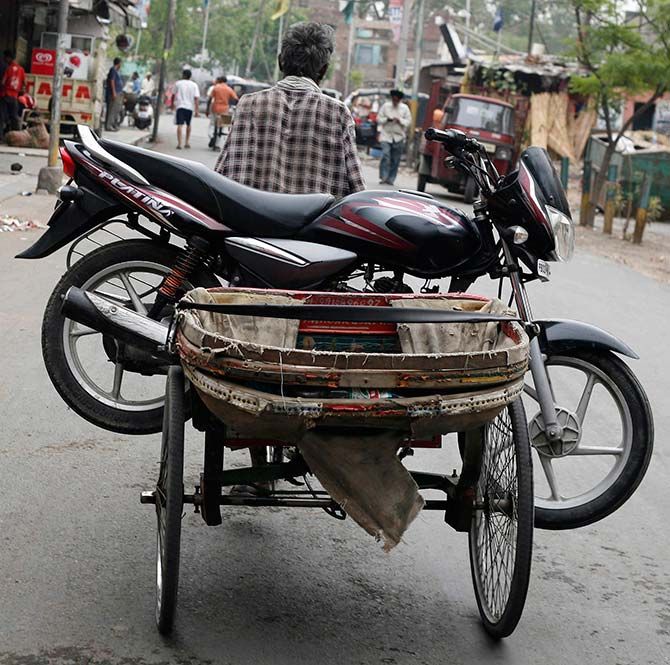 | « Back to article | Print this article |
 India has the lowest income inequality among all emerging economies, but it is much higher than most of the advanced economies, OECD said on Thursday.
India has the lowest income inequality among all emerging economies, but it is much higher than most of the advanced economies, OECD said on Thursday.
The countries with higher income gap than India include Russia, China, Brazil, Indonesia and South Africa – which have recorded the highest income inequality among all developed and emerging economies studied by the Organisation for Economic Cooperation and Development (OECD).
Paris-based OECD, a grouping of the world's 34 major economies, said the rich-poor gap in most advanced economies has risen to highest levels in past three decades, while it continues to remain much higher in many emerging economies.
Among both developed and emerging countries, the gap was found to be highest in South Africa and lowest in Denmark.
India had the lowest income gap, of the nine emerging economies studied by OECD, followed by Russia, Indonesia, Argentina, China, Latvia, Brazil, Columbia and South Africa.
For OECD countries, the income gap was highest in Chile, Mexico, Turkey, the US and Israel. The countries with lowest inequality are Denmark, Slovenia, Slovak Republic and Norway.
Talking about India, OECD said that the direct job creation schemes can serve as a useful back stop to ensure that the long-term unemployed and other disadvantaged groups maintain a contact with the labour market.
"India has one of the largest public works programme in the world in terms of coverage – the National Rural Employment Guarantee Scheme (NREGA) – which plays an important role in reducing short-term poverty and smooth employment and income throughout the year for rural labourers.
"The programme however remains little used, mainly in poorer states because of lack of funding and weak implementation capacity," it added.
OECD said that the richest 10 per cent of OECD population now earn 9.6 times the income of the poorest 10 per cent. This ratio was seven-times in 1980s and nine-times in 2000s.
As per the study, wealth is now even more concentrated at the top level, exacerbating the overall disadvantage of low-income households.
In 2012, the bottom 40 per cent owned only 3 per cent of total household wealth. In contrast, the top 10 per cent controlled half of all total household wealth and the wealthiest 1 per cent owned 18 per cent.
"We have reached a tipping point. Inequality in OECD countries is at its highest since records began," OECD Secretary-General Angel Gurria said.
"The evidence shows that high inequality is bad for growth. The case for policy action is as much economic as social. By not addressing inequality, governments are cutting into the social fabric of their countries and hurting their long-term economic growth," he added.
It also called for more steps to reduce the gender gap. "If the proportion of households with working women had remained at levels of 20 to 25 years ago, income inequality would have increased (further)..." it said.